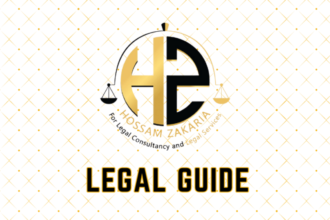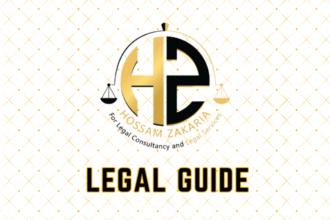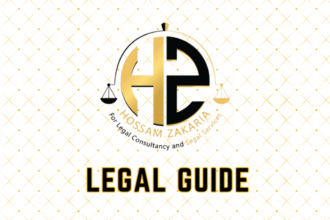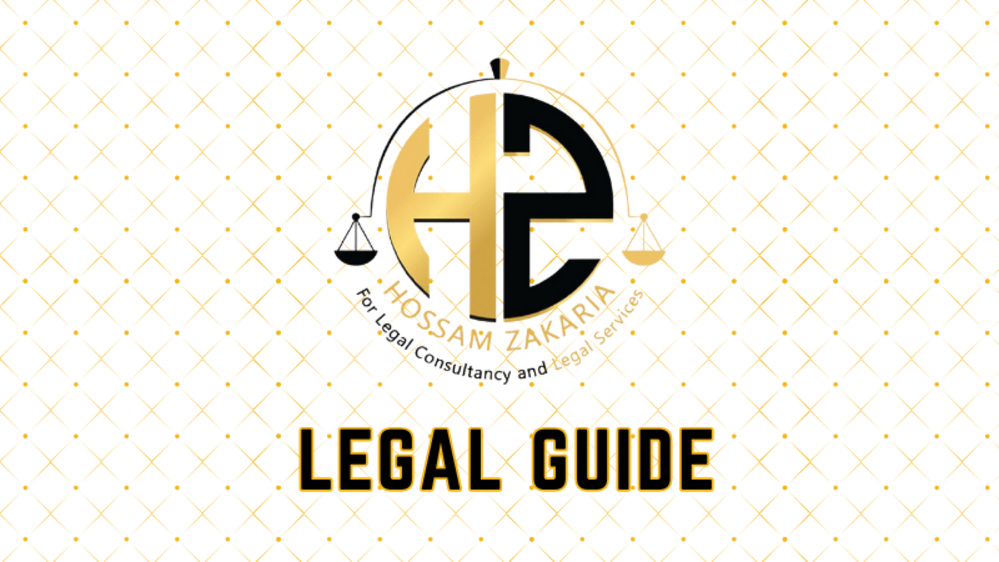Introduction
The United Arab Emirates (UAE) continues its ascent as a global business powerhouse, drawing investors and enterprises from every continent. As cross-border transactions and multinational collaborations multiply, so too do commercial disputes with international elements. The ability to resolve these conflicts efficiently, impartially, and in alignment with the latest legislation is non-negotiable for organizations operating in or with the UAE. International arbitration has thus emerged as a preferred pathway for dispute resolution, providing parties with flexibility, confidentiality, and neutrality.
Against this dynamic backdrop, recent amendments and regulatory updates to UAE arbitration law—culminating in the anticipated changes for 2025—demand the attention of legal counsels, commercial leaders, and compliance stakeholders alike. These reforms are designed to reinforce the country’s position as an arbitration-friendly jurisdiction, harmonize local law with global best practices, and enhance enforcement of arbitral awards. Navigating these complexities requires more than textbook knowledge; it calls for actionable insight, grounded in on-the-ground legal realities and the latest legislative guidance.
This article offers a rigorous examination of the current state of international arbitration and cross-border dispute resolution within the UAE, focusing especially on the 2025 legal updates. Drawing from authoritative sources, including the Federal Arbitration Law No. 6 of 2018 as amended, critical Cabinet Resolutions, and Ministry of Justice guidelines, we deliver a consultancy-grade resource for executives, legal practitioners, and decision makers seeking to mitigate risk and maximize compliance in a fast-evolving regulatory landscape.
Table of Contents
- Understanding Arbitration in the UAE in Light of 2025 Updates
- UAE’s Legal Framework for International Arbitration
- Key 2025 Legislative Updates Affecting Arbitration
- Enforcement of Cross-Border Arbitral Awards in the UAE
- Comparative Analysis: Previous Versus New Arbitration Law Provisions
- Practical Implications for Businesses and Legal Professionals
- Managing Risks and Ensuring Compliance
- Case Studies and Hypothetical Scenarios
- Conclusion and Forward-Looking Best Practices
Understanding Arbitration in the UAE in Light of 2025 Updates
International arbitration has organically become the mechanism of choice for resolving complex commercial disputes in the UAE due to its perceived neutrality, enforceability, and procedural efficiency. UAE law recognizes and upholds arbitration awards, provided they meet rigorous legal criteria. The central statute remains Federal Arbitration Law No. 6 of 2018, but cabinet resolutions and ministerial regulations have periodically clarified procedures, and new 2025 updates are now ushering in further transformation to address evolving business needs.
Evolving Role of Arbitration for Cross-Border Business
Strategically positioned, the UAE not only facilitates regional dealmaking but also sits at the intersection of global investment. As such, the country’s legal infrastructure has encouraged commercial parties to resolve disputes before respected international forums like the Dubai International Arbitration Centre (DIAC) and Abu Dhabi Global Market Arbitration Centre (ADGMAC). The 2025 amendments aim to adapt to increasing case complexity and the demand for more technology-integrated, expedited processes.
Market Impact of Legal Updates
The 2025 legislative changes—expected to be finalized in Federal Gazette Q1—focus extensively on:
- Digitalization of arbitral proceedings
- Stronger enforcement measures for international awards
- Enhanced procedural transparency
- Alignment with the UNCITRAL Model Law and updated New York Convention guidance
- Expanded role for institutional arbitration over ad hoc processes
UAE’s Legal Framework for International Arbitration
Foundational Statutes and Regulatory Instruments
The UAE’s Arbitration Law—Federal Law No. 6 of 2018—incorporated many international best practices, but 2025 updates reflect a strategic intent to further elevate the country’s arbitration profile. Key statutes and regulatory authorities include:
- Federal Law No. 6 of 2018 (Arbitration Law) as amended
- Cabinet Resolution No. 57 of 2022 on the Executive Regulations of the Civil Procedures Law
- Federal Decree-Law No. 42 of 2022 (Civil Procedures Law, updated)
- UAE Ministry of Justice Guidelines
- International conventions, such as the New York Convention 1958
Institutions such as DIAC, ADGM, and the Dubai International Financial Centre-London Court of International Arbitration (DIFC-LCIA) play a critical role in administering arbitration proceedings under these frameworks.
Key Legal Provisions and Developments (2025)
- Expedited Arbitration Procedures: Amendments facilitate faster resolution timelines for certain commercial disputes, with stricter limits on challenges and appeals.
- Digital Hearings and E-Filings: New provisions formally recognize and bolster the use of electronic evidence, virtual hearings, and e-filing systems.
- Arbitrator Selection and Appointment: Guidelines further clarify expertise requirements, conflicts of interest, and appointment mechanisms, especially for international panelists.
- Recognition and Enforcement: Stronger provisions on enforcing both domestic and foreign arbitral awards, including the authority of local and free zone courts to issue freezing or enforcement orders.
Key 2025 Legislative Updates Affecting Arbitration
As the UAE races to remain a regional and international hub for arbitration, the release of new executive regulations and Cabinet resolutions in late 2024 and early 2025 introduces critical reforms. Let us analyze some of the most significant 2025 updates.
1. Digitalization Mandates for Arbitration Proceedings
Source: Draft executive regulations, UAE Ministry of Justice, anticipated Q1 2025.
The law now compels institutional arbitration centers and tribunals to accept and manage all filings, evidence, and correspondence electronically. This not only ensures procedural efficiency, but also aligns with global practices post-COVID-19.
- Electronic signatures and documents now carry the same legal weight as originals for arbitration submissions.
- Arbitration hearings may be conducted by video or teleconference unless expressly excluded by the arbitration agreement.
2. Expedited Arbitration Rules
For monetary disputes below AED 10 million or where parties agree, tribunals are now required to complete proceedings within 6 months, with limited room for extensions. Challenges to awards are tightly circumscribed, cutting potential delays.
3. Expanded Powers for UAE Courts in Support of Arbitration
Amendments to the Civil Procedures Law now enable onshore and free-zone courts to:
- Order interim measures in aid of arbitration (asset freezing, evidence preservation, etc.)
- Compel the attendance of witnesses
- Appoint substitute arbitrators when parties or institutions fail to do so
This harmonizes the UAE with leading arbitration jurisdictions and offers parties more immediate remedies during proceedings, boosting confidence in the enforcement phase.
4. Enhanced Recognition of Foreign Arbitral Awards
Reference: New York Convention 1958 (as ratified) and Cabinet Resolution 2024 on foreign award enforcement.
- Eliminates several technical defences previously used to resist recognition
- Clarifies that all arbitral awards issued in the UAE or by a recognized foreign tribunal must be enforced, except in clear cases of violation of UAE public order or morals
5. Arbitrator Qualifications and Obligations
New ministerial guidelines reinforce:
- Mandatory disclosure of conflicts of interest
- Specific continuing professional development for arbitrators serving on cross-border cases
- Increased diversity and multilingual capability requirements for panels involving international disputes
Enforcement of Cross-Border Arbitral Awards in the UAE
A key reason for choosing arbitration is the enforceability of awards—even across borders. The UAE is a signatory to the New York Convention 1958, obliging local courts to recognize and enforce foreign arbitral awards, subject to limited exceptions. Recent legislative and judicial practice has further eased enforcement, minimizing grounds for non-recognition and clarifying procedures for both mainland and free zones.
Enforcement in Onshore Courts
- Applications for enforcement are made to the competent Court of First Instance.
- Prior scrutiny for compliance with procedural requirements (e.g., valid agreement to arbitrate, regular conduct of proceedings).
- Limited grounds for refusal: Only manifest violations of public policy or non-arbitrable subject matter.
Enforcement in Free Zones (DIFC & ADGM)
- Free zone courts act as “conduit jurisdictions”, able to recognize and enforce international awards with minimal formality.
- Free zone enforcement orders can be exported to federal and local courts throughout the UAE, streamlining the process.
Strengthened 2025 Enforcement Mechanisms
- Faster timelines for enforcement applications (45 days from filing to first order).
- Reduced evidentiary requirements for foreign awards complying with the New York Convention.
- Dedicated commercial benches in Abu Dhabi, Dubai, and Sharjah to expedite arbitration-related cases.
| Aspect | Prior to 2025 | 2025 Updates |
|---|---|---|
| Digital submission | Optional | Mandatory for all documents |
| Timeline (enforcement proceedings) | 3-6 months | Within 45 days (standard) |
| Recognizing foreign awards | Subject to technical objections | Objections limited to public order |
Comparative Analysis: Previous Versus New Arbitration Law Provisions
The evolution of UAE arbitration law represents a deliberate policy to foster a business-friendly, globally respected dispute resolution environment. Below, we provide a focused comparison of key features where the 2025 amendments significantly depart from previous law:
| Provision | Original Law | 2025 Amendments |
|---|---|---|
| Arbitration Agreement Validity | Written, signed documents required | Electronic communications now accepted |
| Eligible Arbitrators | No minimum requirements | Disclosure, training, special requirements for cross-border cases |
| Hearing Format | Physical attendance default | Virtual as default, physical if expressly required |
| Court Intervention | Limited and reactive | Proactive, interim relief available |
| Award Enforcement | Possibility of delay due to technicalities | Fast-track, public order only as bar |
Practical Implications for Businesses and Legal Professionals
These amendments reflect more than mere technical changes—they fundamentally alter how organizations should plan, contract, and litigate cross-border disputes in the UAE. Here are essential points for business leaders and legal counsels:
1. Drafting and Reviewing Arbitration Clauses
- Ensure clauses explicitly opt for recognized arbitral institutions (e.g., DIAC, ADGM).
- Reference incorporation of digital and expedited procedures to avoid subsequent disputes over process.
- Select seat/jurisdiction carefully—free zone arbitration may offer procedural advantages.
2. Evidence and Document Management
- Implement reliable e-document retention policies in anticipation of digital submission mandates.
- Train legal teams in presenting evidence through virtual proceedings and comply with e-disclosure protocols.
3. Arbitrator Selection Checklists (Potential Visual: Table)
| Requirement | Details |
|---|---|
| Conflict declarations | Mandatory, ongoing |
| Professional qualifications | Proof of arbitration training + international exposure |
| Diversity | Gender, language, and jurisdictional diversity for cross-border panels |
| Digital literacy | Required for virtual hearings |
4. Enforcement Planning
- Choose free zone enforcement where possible for cross-border ease.
- Audit historic contracts and awards for potential technical non-compliance under new digital standards.
- Engage UAE-registered counsel early to steer compliance through local, federal, and free zone courts.
5. Institutional Arbitration Preference
Favor institutional arbitration clauses over ad hoc arrangements to leverage institutional resources and compliance mechanisms, especially under the new regulatory environment.
Managing Risks and Ensuring Compliance
Risks of Non-Compliance
- Invalid Arbitration Clauses: Omission of digital/e-procedure wording may invalidate the chosen process.
- Delay in Enforcement: Failure to align evidence or submissions with the latest digital requirements can result in award recognition delays.
- Penalties for Procedural Breach: The 2025 updates introduce fines and sanctions for legal representatives or institutions failing to abide by digital mandates or expedited timelines.
- Loss of Right to Challenge: Shortened windows for challenging awards may result in parties missing critical appeal deadlines.
Compliance Strategies for 2025 and Beyond
- Conduct comprehensive audits of all template contracts and existing arbitration agreements by Q2 2025.
- Update internal policies governing virtual hearings, e-discovery, and data retention to meet new standards.
- Enroll legal teams in targeted, government-approved professional development on international arbitration and digital evidence.
- Establish relationships with experienced local counsel and recognized arbitral institutions in the UAE.
Suggested Compliance Visual: Flowchart
Process Flow:
1. Draft/Review Arbitration Agreement → 2. Register with Approved Institution → 3. Prepare E-Submissions and Evidence → 4. Attend Virtual Hearings → 5. Seek Enforcement via Appropriate Court (free zone/mainland)
Case Studies and Hypothetical Scenarios
Case Study 1: Enforcement of Foreign Award under New Law
A European logistics company obtains a €5m award in DIAC-administered arbitration against a UAE supplier.
- Old Law: Enforcement in UAE onshore courts took over six months, with supplier raising technical objections to digital evidence submission.
- 2025 Law: Enforcement order granted within 45 days after e-filed petition. Supplier’s objections dismissed due to updated digital admissibility rules and limited public order defence.
Case Study 2: Expedited Arbitration Saves Project Launch
A Swiss tech firm and Dubai-based partner have a €2m licensing dispute. Both agree to expedited DIAC arbitration under new rules.
- Result: Full electronic submission and digital hearing enable completion of all proceedings, including award, within 18 weeks—allowing the project to resume with minimal delay.
Hypothetical: Risks for Non-Compliant Contracting
US corporation omits digital clause in arbitration agreement with Abu Dhabi counterpart. Dispute arises, and Abu Dhabi partner challenges enforceability due to absence of e-filing mandate in original contract.
- Impact: Litigation risk and delay. Corporation must renegotiate arbitration process or risk litigation in UAE courts, increasing time and cost.
Conclusion and Forward-Looking Best Practices
The 2025 amendments to UAE arbitration and cross-border dispute laws are more than technical refinements—they mark a paradigmatic shift, aligning the Emirates with premier international jurisdictions and reinforcing its role as the dispute resolution hub of choice for regional and global commerce.
Key Takeaways:
- Digitalization and expedited timelines set a new standard for commercial efficiency.
- Foreign parties gain unprecedented certainty in enforcement of arbitral awards, both onshore and in free zones.
- Businesses must proactively revise contracts, retrain personnel, and refine risk management processes to remain compliant under the new legal regime.
As these reforms shape the legal landscape, it is critical for decision-makers to engage with expert counsel, conduct regular compliance checks, and seize the strategic benefits offered by the UAE’s advanced arbitration framework. Organizations that adapt swiftly will not only mitigate risk but leverage the system’s efficiency and enforceability for continued success in the UAE and beyond.



